Anyone interested in living in the state of Washington should first understand the pros and cons of moving there.
While living in Washington state offers many benefits and can be ideal for some, it may have some significant drawbacks and may not be a suitable fit for others.
Keep reading to learn about the highlights and important aspects to consider for those interested in moving to this state.
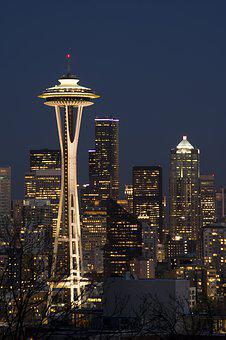
Contents
- Pros of Living in Washington
- Cons of Living in Washington
- Washington Safety Overview
- Frequently Asked Questions
- Which city has the highest cost of living in Washington?
- Which city in Washington has the densest population?
- What is the state tax rate on consumer products in Washington?
- What is the total average rainfall for Washington state for the year?
- What are the average temperatures for Washington state in the winter?
Pros of Living in Washington
Washington is a state with many benefits to offer residents.
Consider these pros of living in Washington to help you decide if it is the ideal place to settle.
1. Plenty of outdoor recreation
Washington state is known for its abundance of outdoor recreational activities.
Whether it is spring or summer, there is something for everyone.
Hiking enthusiasts will love living in this region of the country because there are frequently ideal hiking conditions and scenic areas that are ideal for all skill levels and ages.
In the summer months, there are plenty of water sports and camping activities, and in the winter months, individuals can enjoy sledding, skiing, and ice-skating.
2. Incredible Scenery
Washington state is home to some of the most beautiful scenery in the country.
In each part of the state, there is something to enjoy that is awe-inspiring.
For instance, there are majestic mountain ranges in sweeping landscapes complete with valleys and hillsides.
For those who enjoy the beach, there are plenty of public beaches where people can enjoy the sun or even surf.
Not only is there beautiful scenery in nature, but also scenic areas of the urban cities such as Seattle.
3. Urban and Rural Living
People who choose to move to Washington can choose to live in an urban or rural setting.
Even if the individual works in an urban area, they can settle nearby in a rural setting, which is ideal for growing families.
There are plenty of suburban areas adjacent to the major cities where it is easier to commute and live away from heavy traffic and large populations of individuals.
4. No State Tax
One of the financial perks of living in Washington is that there is no state tax.
This higher tax rate helps create a better economic situation for residents.
However, it is important to note that other taxes in certain areas may be higher than in other parts of the country.
5. Beautiful Beaches
Many people may not realize that Washington state is home to several beautiful beaches.
Because this state borders the Pacific Ocean, there are plenty of areas to enjoy the sun, surfing, whale watching, and other outdoor activities.
All along the western coast, there are incredible spots to experience and enjoy.
6. Environmentally Conscientious
Washington’s government and residents are more mentally conscientious than in many other areas.
People all over the state make a group effort to ensure they protect and preserve their environment.
This includes passing new environmental laws to help protect wildlife and habitats and programs designed to help recycle or prevent pollution and pollution of natural resources.
Anyone who is interested in living in an area.
Places environmental concerns as a priority will enjoy living in Washington.
7. Friendly People
The residents of Washington tend to be friendly and welcoming.
Some areas of the country do not have this perk, and it is appreciated by many who move to this area and enjoy the sense of community and warmth of its residents.
This is also an excellent perk for individuals who are interested in raising their families in a pleasant environment.
8. Great Schools
Washington is home to some highly ranked schools.
Many schools across the state have comprehensive education and access to Advanced Technology and special programs to suit individual learning needs.
Before moving to the state, consider the area you want to live in and spend time researching the best schools for each child’s grade level and abilities.
Cons of Living in Washington
Washington state offers many benefits, but it also has a few downsides that potential residents need to know about before moving to this state.
Consider the following cons and use this information to help determine if this is an ideal area.
1. Significant Homeless Population
Washington has some of the highest homeless populations and its urban areas of anywhere in the country.
Major cities like Seattle have a steadily growing homeless issue that can deter many.
When deciding which area to move to, it is a good idea to learn more about the areas with the heaviest concentration of homelessness to help make an informed decision.
2. High Cost of Living
Unfortunately, the cost of living in Washington is much higher than in many areas of the country.
However, people who decide to live in the more rural or suburban areas can save money on living expenses much more easily than if they chose to reside in the urban areas.
Many people who work in the cities will settle several miles outside the city limits to get lower housing prices for affordable utilities and consumer products.
Be sure to completely research the cost of living in the areas you’re considering as a potential residence.
3. Higher Sales Tax Rates
Washington has a considerably higher tax rate on consumer products for several reasons.
This area of the country has many more programs and projects at a state and local government level funded by taxes on certain products.
It is important to be aware of the tax rate on anything you consider purchasing and consider this when researching an area to relocate to in Washington.
4. Heavy Traffic in Areas
Washington has some very densely populated areas, and in these areas, there is heavy traffic throughout the day.
Like any major cityscape, traffic is challenging in the mornings and after 5 when people commute to and from work.
Whether you decide to live in or near a major city, there still may be areas where traffic congestion is an issue due to the local infrastructure and elements.
It is essential to be aware of traffic conditions when choosing a place to live and take precautions to ensure you can get to work and other obligations on time.
5. Frequent Rain and Cloudy Conditions
Some areas of Washington are known as the cloudiest and rainiest anywhere in the country.
Unfortunately, individuals with seasonal affective disorder will have issues because of the lack of sunshine and fewer days for outdoor activities in the fresh air and sunshine.
The snow days that occur in the winter months add to the rainy and cloudy conditions.
Overall, this area of the country has few sunny days, so individuals who move there will have to endure the unusual climate.
6. Harsh Winters
The harshness of wintertime in Washington is determined by elevation and location relative to the mountain ranges and the coastline.
Areas situated in particular areas near the mountain range on the opposite side of the onshore winds will have frequent deep snow and icy conditions during the colder months.
Anyone planning to move to Washington must be prepared to drive in hazardous conditions and take appropriate precautions to keep themselves and their families warm and stocked up on supplies when travel is treacherous or nearly impossible.
7. Potential for Wildfires
Washington is very prone to frequent wildfires for various reasons.
Areas of the state have strong onshore winds from the ocean and may have long periods of dry weather, which is ideal for sparking wildfires.
Anyone living in this area should be prepared for the potential to have wildfires in their location and ensure they have their insurance in place and up-to-date to help recover from any losses or damages from these fires.
8. Higher Risk of Seasonal Depression
Seasonal depression is a constant issue for individuals who live in Washington.
Some may be more noticeably affected by the lack of sunshine and drab weather than others.
It is something to consider if the individual has previously had issues with this seasonal depression.
However, some measures can be taken to help reduce the impact on those living in this area.
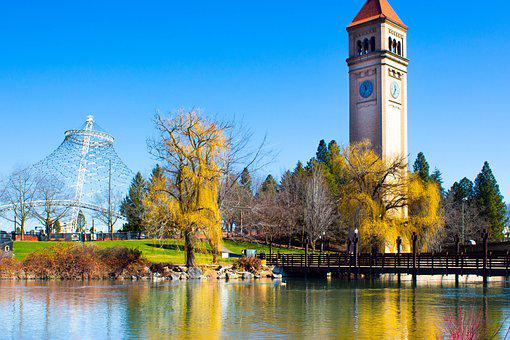
Pros and Cons of Living in Washington – Summary Table
| Pros of Living in Washington | Cons of Living in Washington |
|---|---|
| 1. Plenty of outdoor recreation | 1. Significant Homeless Population |
| 2. Incredible Scenery | 2. High Cost of Living |
| 3. Urban and Rural Living | 3. Higher Sales Tax Rates |
| 4. No State Tax | 4. Heavy Traffic in Areas |
| 5. Beautiful Beaches | 5. Frequent Rain and Cloudy Conditions |
| 6. Environmentally Conscientious | 6. Harsh Winters |
| 7. Friendly People | 7. Potential for Wildfires |
| 8. Great Schools | 8. Higher Risk of Seasonal Depression |
Washington Safety Overview
READ THE FULL REPORT: Washington Safety Review
Safety Index: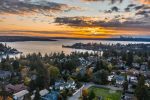
- OVERALL RISK: LOW
- TRANSPORT & TAXIS RISK: LOW
- PICKPOCKETS RISK: LOW
- NATURAL DISASTERS RISK: LOW
- MUGGING RISK: LOW
- TERRORISM RISK: LOW
- SCAMS RISK: LOW
- WOMEN TRAVELERS RISK: LOW
Frequently Asked Questions
Which city has the highest cost of living in Washington?
The city with the highest cost of living in Washington is Seattle.
On average, Seattle has a 37% higher cost of living than the rest of the state.
Individuals who moved to work in Seattle may want to consider living in the suburbs or rural communities adjacent to the city.
Which city in Washington has the densest population?
Seattle is the densest city by far with a population of over 9,000 people per square mile.
The second most densely populated area of Washington is Spokane.
Individuals who choose to move to Washington may want to consider if they want to live in a densely populated area because there are plenty of housing options on the outskirts of these cities that allow for more peaceful and affordable living.
What is the state tax rate on consumer products in Washington?
The state tax rate on consumer goods in Washington is 6.5%.
That is considered one of the highest tax rates of any state in the country.
Although there is no state income tax, these high tax rates are used to find infrastructure projects, state-run programs, and other endeavors to ensure the upkeep and maintenance of various departments in the state.
What is the total average rainfall for Washington state for the year?
The average rainfall in Washington is between 40 and 90 inches, depending on the location.
Lower elevations have less rainfall, while the higher elevations can see upwards of 90 inches or more depending on the season and several other environmental factors.
It is considered the rainiest day in the country.
What are the average temperatures for Washington state in the winter?
The average temperature in Washington state during winter is between the mid-20s and the mid-40s.
However, the average temperature can depend on elevation and several other factors.
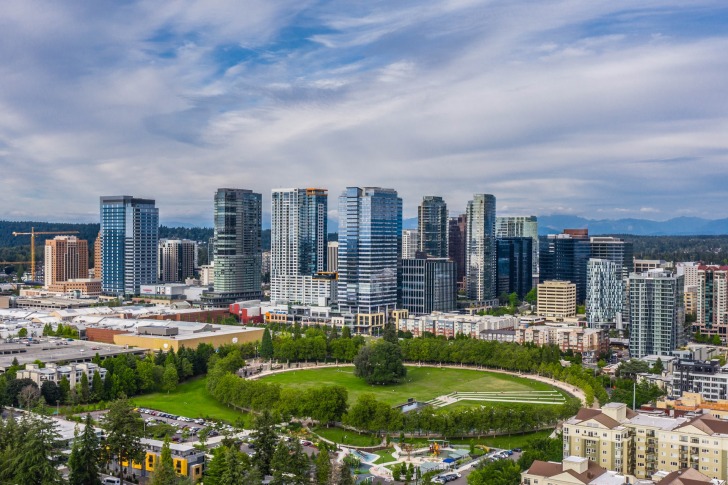
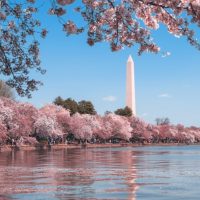
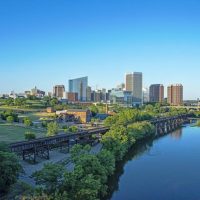
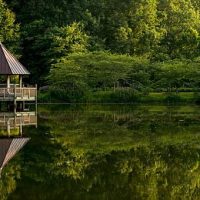
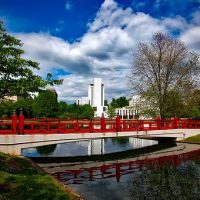
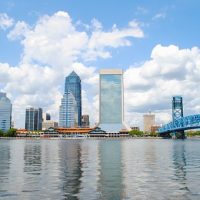
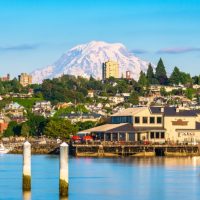





Your article mentions the friendliness of Washington inhabitants, you obviously haven’t heard the term “the Seattle freeze.” I moved here February 2021, settled in the Greenlake area of Seattle. This term is very well known. It describes the cool reception one can expect from folks living here. They extend outwardly liberal, intellectual mindsets but best believe, there are no invitation’s forthcoming.
The abundance of outdoor recreation and beautiful scenery make it a great place to live for nature lovers. However, the high cost of living and heavy traffic in urban areas can be major drawbacks. It’s important for anyone considering a move to Washington to carefully weigh these factors and decide if it’s the right fit for them.